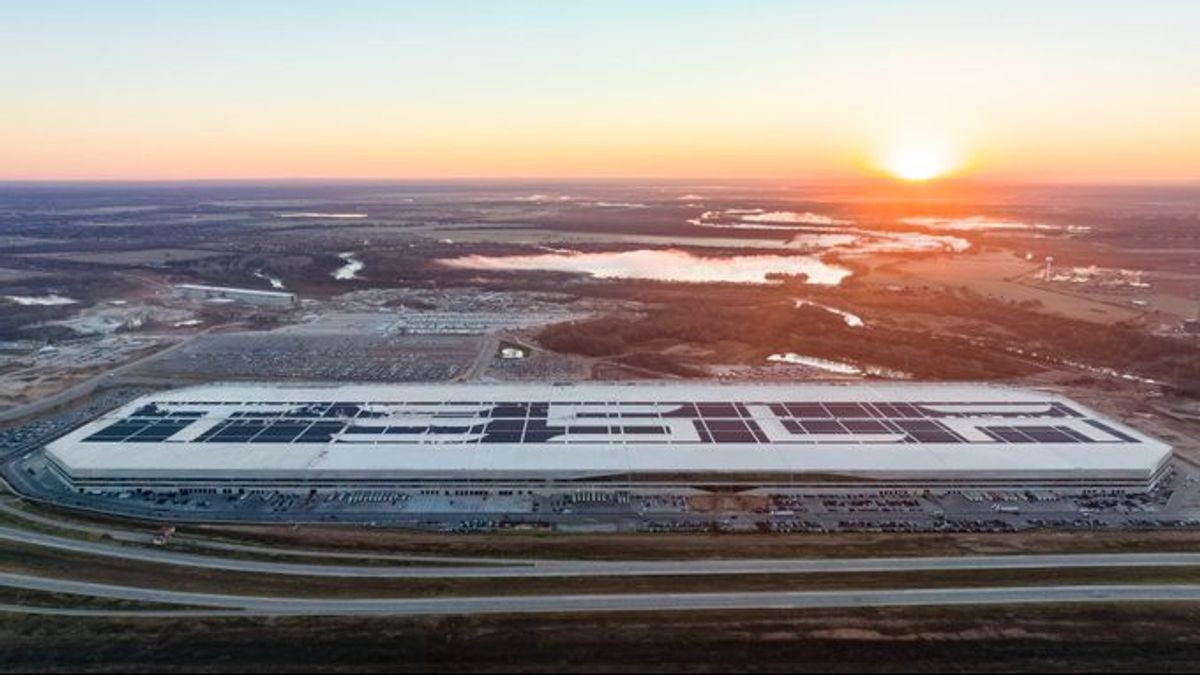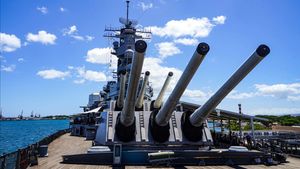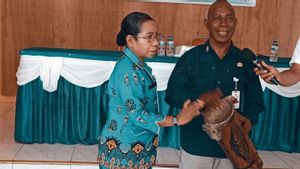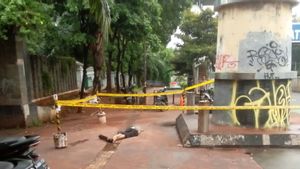JAKARTA - Armed with the largest nickel reserves in the world and the ban on the export of nickel ore, Indonesia is a country that is very necessary for the electric vehicle industry, because this type of industry uses a lot of metal.
In just three years, Indonesia has signed more than a dozen deals worth more than 15 billion US dollars (Rp 225 trillion) for domestic battery production and electric vehicles with major manufacturers including Hyundai Motor, LG Group and Foxconn.
Next is the giant Tesla Inc, the world's most valuable electric car maker. President Joko Widodo has even made every effort to convince CEO Elon Musk to produce electric or battery vehicles in the country.
"I firmly believe this industry will grow fast, will grow very fast," Jokowi said in an interview with Reuters last week.
According to the US Geological Survey, Indonesia currently has a total of 21 million tons of reserves proven to contain nickel. That number is almost a quarter of the world's nickel reserves.
According to the International Nickel Study Group Indonesia mined 1.4 million tonnes of nickel in January-November last year. That number is far ahead of the second largest producer, the Philippines, which mined 290,000 tonnes in the same period, and more than doubled Indonesia's production by 606,000 tonnes in 2018.
Jokowi has banned exports of nickel ore in 2020, but has allowed higher-value exports of nickel products, which forced companies to process and produce domestically.
Indonesia's processed nickel exports then swelled to more than 30 billion US dollars (Rp 450 trillion) in 2022 from around 1 billion US dollars (Rp 15 trillion) in 2015.
According to the International Energy Agency, Indonesia is expected to contribute half of the increase in global nickel production between 2021 and 2025 This is because demand for electric vehicles has soared. Each vehicle uses up to 40 kg of nickel.
"The Indonesian government is building an entire value chain to serve electric vehicle factories," said Victor Chin, the main consultant at the metal consulting firm CRU, quoted by Reuters.
"So it makes sense for Tesla to consider Indonesia, both for gigafactory and car manufacturing," he said.
Musk's target is to sell 20 million electric vehicles by 2030, more than 15 times that of selling 1.3 million Tesla vehicles by 2022. To that end, it is necessary to build seven or eight more "gigafactories", namely facilities that produce battery electric cars on a large scale, an average of one every 12 months or more.
Indonesia has a similar ambitious target, Jokowi said in an interview that nickel exports could grow 200 times from the pre-export ban rate of around US$1 billion (Rp15 trillion) if the country manages to build an electric vehicle ecosystem.
Brazilian mining company Vale has estimated a 44% increase in nickel demand by 2030 from levels in 2022 due to high demand for batteries aimed at electric vehicles.
Jokowi did not provide a time limit for export growth, but said Indonesia is targeting to build an integrated supply chain for electric vehicle batteries by 2027.
Another step, Indonesia will also ban the export of copper ore and bauxite in June 2023, both of which are used in the production of electric vehicles.
Meanwhile, the European Union's ban on nickel exports has been opposed to the World Trade Organization. Even the WTO decided to support the EU, but Indonesia has filed an appeal.
But Indonesia's success has prompted other countries to imitate its steps. Now the Philippines plans to impose a nickel ore export tax to encourage miners to invest in processing.
The development of the industry in Indonesia is Jokowi's favorite project. He has taken it himself to convince Musk to invest in Indonesia, holding talks with Tesla's head twice.
Last week, Jokowi said he had even offered Tesla a nickel mining concession and tax relief to invest in the country, and he believed the deal would be finalized.
While Tesla is looking for additional manufacturing centers, there has been no comment on the company's plans in Indonesia. South Korea, Canada and Mexico have also tried to lure the automaker.
The company has signed a nickel procurement contract worth around US $ 5 billion from companies in Indonesia.
One of the areas that is of concern to potential investors is the impact of the nickel mining industry and the use of coal in Indonesia for power plants.
The process of making nickel suitable for EV batteries has a high carbon footprint and produces waste that is feared by environmentalists to be thrown into the sea.
"However, global automakers are investing or looking for sources from Indonesia due to limited alternatives and soaring demand," analysts say.
"There is not enough expansion of nickel capacity outside Indonesia. Indonesia's nickel production has increased its share from less than 20% to almost 50% in the last four years," said Soni Kumari of ANZ.
"Even buyers from the forward market who are more aware of the sustainability credentials will be forced to buy from Indonesia," said Kumari.
"As demand for nickel grade batteries continues to grow, battery and car companies cannot simply ignore (criticism) that 'Indonesian technical devices are not environmentally friendly enough' when most future growth will come from Indonesia," he said.
The English, Chinese, Japanese, Arabic, and French versions are automatically generated by the AI. So there may still be inaccuracies in translating, please always see Indonesian as our main language. (system supported by DigitalSiber.id)












